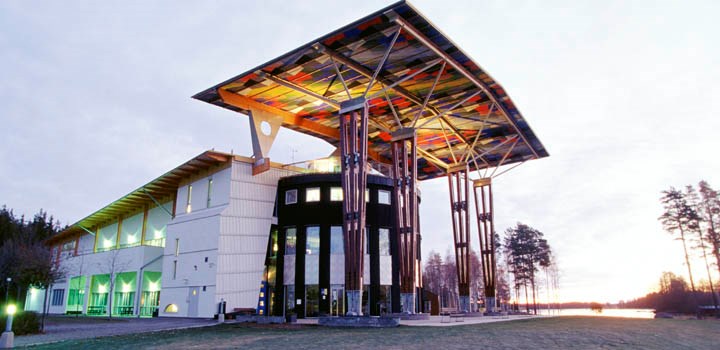Presentation and Contact

In beautiful rural Bergslagen, once the heartland of Swedish mining, you will find Grythyttan and the School of Hospitality, Culinary Arts and Meal Science (RHS) with its campus. Grythyttan has long been a hub for the food, drink and hospitality industry.
Courses on offer include undergraduate and master’s courses and study programmes in culinary arts and meal science as well as in hospitality. At the doctoral level, RHS was first in the world to introduce culinary arts and meal science as a doctoral subject area. Our objective is to offer in-depth education and training to meet the needs of the future hospitality industry.
Chef - Culinary Arts and Meal Science 180 ECTS
Sommelier - Culinary Arts and Meal Science 180 ECTS
Science and Technology - Culinary Arts and Ecology 180 ETCS
In these programmes great emphasis is put on practical skills, aiming to combine these with science as well as with working methods with aesthetics and creativity in focus. We study the meal/hospitality from a five aspect viewpoint with the following main five aspects: the room, the meeting, the product, the control management system and the atmosphere. This model is called: Five Aspects Meal Model (FAMM) and is used during planning, producing and evaluating meal/hospitality from an entirety perspective. The guest/diner/customer is in focus and we try to give her/him the best meal/hospitality experience possible in each situation. During the course of our education endeavours the students can be graduated in Culinary Arts and Hospitality Science, Bachelor Degree (B.A) 180 ECTS.
Culinary Arts and Meal Science was established as a subject of post-graduate studies at department of Restaurant and Culinary Arts at Örebro University 2002. The subject area definition of culinary Arts and Meal Science, as opposed to Culinary Science, was chosen. This is because Culinary Arts places great emphasis on practical skills, aiming to combine these with science as well as with working methods with an artistic content. Thus its scientific approach is a multidisciplinary one, joint effort with other sciences being necessary. Research areas such as ethnology, sensory science, public health, business economics, sociology, nutrition, all constitute adjacent branches. These areas treat the meal from various aspects. A multidisciplinary tutorship is arranged for the PhD students. The PhD degree programme is given in Culinary Arts and Meal Science. The five aspects meal model is also in focus when we put our research questions.
Do you want to get in touch with someone who works here? Follow the links below.
